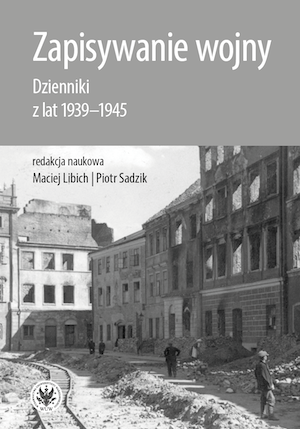Dzienniki czasu wojny
Wartime Diaries
Between Tradition and Innovation in Diaristic Forms
Author(s): Jacek Leociak
Subject(s): Studies of Literature, Polish Literature, Pre-WW I & WW I (1900 -1919), Interwar Period (1920 - 1939), WW II and following years (1940 - 1949), Post-War period (1950 - 1989), Transformation Period (1990 - 2010), Theory of Literature
Published by: Wydawnictwa Uniwersytetu Warszawskiego
Keywords: World War II 1939–1945; Holocaust; diaries 1939–1945; limit experiences
Summary/Abstract: The author focuses on the Second World War, but draws attention to the deep genealogy of the phrase “wartime diaries”, treating them as a special form of recording limit situations in which a person is confronted with violence and death, which go beyond the ways of coping with these experiences, and the community is faced with the horror of mass extermination. Culture and civilization are in a state of catastrophe, destruction and collapse. Examples of records of such experiences in the past include plague logs and pogrom chronicles. The concept of “wartime diaries” has two basic features: 1. they are written in borderline situations and contain a record of borderline experiences; 2. the primary distinguishing criterion is the proximity of the record and the experience. The author presents the topography of diaristic records and the circles of experience they testify to. As for the topography of writing, the observation field was narrowed only to the area of the Warsaw, Łódź, Kraków, Vilnius and Kaunas ghettos. From the various experiences within the thematic spectrum of the diaries, the author presents two: the hunger in the ghetto and the siege of the city of Warsaw and Leningrad. The article proposes to expand the genological area of the diaries and draw attention to diaristic borderlands and genological hybrids. This broadened spectrum of forms would fit between the diary and the chronicle, and between the letters and the diary. There are also “texts in extremis”, which can be considered a unique“ ultimate diaristic record”. This separate group consists of various types of inscriptions on the walls of torture rooms and prisons, places where convicts are held. The act of writing and the moment of experience merge.
Book: Zapisywanie wojny. Dzienniki z lat 1939–1945
- Page Range: 19-77
- Page Count: 59
- Publication Year: 2022
- Language: Polish
- Content File-PDF

